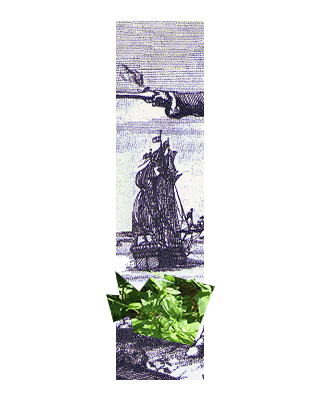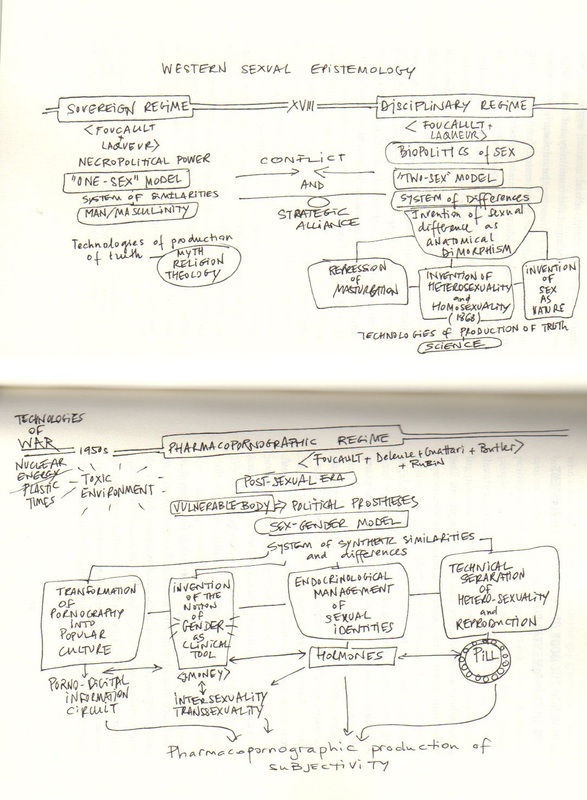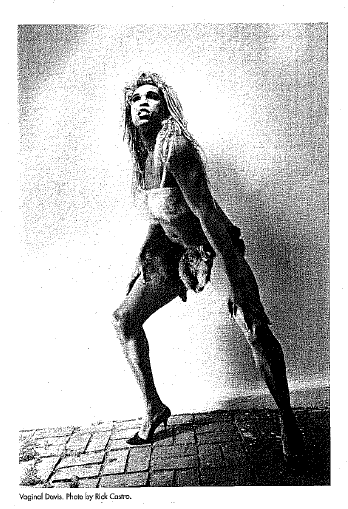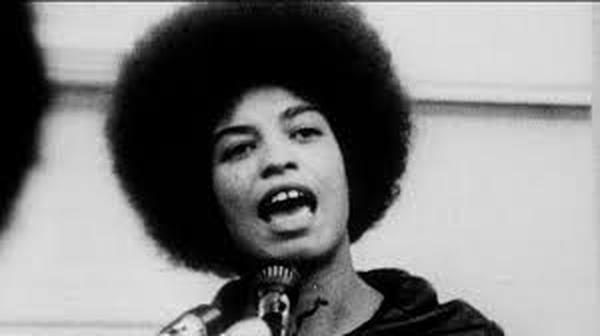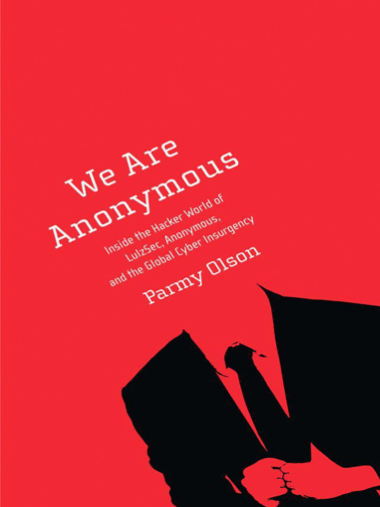Bonny & Read Book and Film Club is a self-organised project with no predetermined direction. It aims to create a setting for study, sharing experiences, knowledge and questions in a convivial way, composing a free and safe space. Each session will be the outcome of proposals from the participants. Bonny & Read Book and Film Club is a monthly project.
Session 6
... will take place on Sunday, August 2nd, from 3pm in a grassy backyard (address below, RSVP much appreciated).
Take off your watch and put your phone on airplane mode, the session 6 will be dedicated to sail on the summer sky: Bonny & Read Book and Film Club is moving outside of Miguel Abreu Gallery for an epicurian afternoon of reading. Along with your books, notes and questions around the topics discussed during the past five sessions, you are welcome to bring some refreshments and/or things to put on the grill, Bonny and Read will make a barbecue bare foot in the grass.
Please note that some discussions about the fall are happening now on the google group, join us if you want to get involved.
-
Direction for session 6:
Bonny and Read @Flora:
283 Maple Street
11225 Brooklyn, NY
Subway: Sterling Street or Prospect Park
Contact: katz.flora[a]gmail.com/ (646) 645 2152
Session 5
... took place on Tuesday June 23, 7pm at Miguel Abreu Gallery, NY.
Departing from the notion of genderpiracy as stated by Paul B. Preciado in "Testo Junkie" (2008), this fifth session will focus on anonymity and piracy as potential models for constructing emancipated selves within collective and free spaces. Since the early 2000's, a great number of anonymous platforms have emerged on the web, allowing for immediate communication within rapidly forming communities. Sites of political resistance, hacking, or free exchange, this A-culture, as Auerbach defines it, functions as a double-edged sword: if it "provides a semi autonomous safe space for people who otherwise are enmeshed in the majority culture," then masquerade, trolls, and tricksterism will also appear as a natural part of the mechanism. How shall we understand this double movement in the construction of a collective zone of resistance? How are unrestricted notions of identity at play in the evolution of an empowered collective? As well, how mainstream information and media defines and frames A-culture and piracy?
Three texts are suggested for reading:
- "Anonymity as culture: treatise", part 1 and part 2, by David Auerbach, published in Triple Canopy, 2012
- "The Temporary Autonomous Zone, Ontological Anarchy, Poetic Terrorism", by Hakim Bey, Part 3, 1991
- "Our weirdness is free", by Gabriella Coleman, published in Triple Canopy, 2011
- "We Are Anonymous, inside the Hacker World of LulzSec, Anonymous and the Global Cuber Insurgent", by Parmy Olson, 2012
As well you are welcome to bring videos excerpts/links of medias which are about piracy and a-culture.
Session 4
...took place on Tuesday April 21 at Miguel Abreu Gallery
For this fourth session we will focus on two chapters by José Esteban Munoz's "Disidentifications, Queer of Colors and the Performance of Politics" (1999):
- Chapter 4, "'The White to Be Angry': Vaginal Davis's Terrorist Drag"
- Chapter 7, part 2: "Identity against itself: Felix Gonzalez-Torres and the Limits of Multiculturalism"
Through these two chapters, we are aiming to continue the discussions engaged previously, especially since we watched the films "Contagious" (2010) by Pauline Boudry and Renate Lorenz and "Scorpio Rising" (1963) by Kenneth Anger. Vaginal Davis and Felix Gonzalez Torres' practices will be the matrix of our dialog as two opposite examples of disidentifications' strategies: the first as a circulation from one identity to another, the second as an absence or a recess of identity.
The text by Angela Davis, "Race and criminalization, Black American and the Punishment Industry" (1997) will introduce the session.
Session 3
...took place on Tuesday April 21 at Miguel Abreu Gallery
Evening of screenings and dialog: As a continuation of the discussions around Paul B Preciado's genderpiracy and Munoz's disidentification processes, we will explore the potentialities of "working on and against" the dominant ideologies through the discourses of performance and the moving image. Performances and films will reveal different techniques of the self as a site of contestation, a tool for denunciation, resistance and survival.
Following the propositions on this online document, screenings shall include: Kennett Anger, My Barbarian, Pauline Boudry and Renate Lorenz, Andrea Fraser, Isaac Julien, Sheila McLaughlin & Lynne Tillman, Adrian Piper, Marlon Riggs, Jack Smith, Hito Steyerl, Stephen Wolfram, Ed Wood. We will decide together the order of the films.
"Disidentification negotiates strategies of resistance within the flux of discourse and power. It understands that counterdiscourses, like discourse, can always fluctuate for different ideological ends and a politicized agent must have the ability to adapt and shift as quickly as power does within discourse". José Esteban Muñoz, "Disidentifications, Queers of Colors and the Performance of Politics", 1999, p.19
Session 2
... took place on Tuesday, March 31st, 7pm, at Miguel Abreu Gallery, 36 Orchard Street, New York.
We focused on:
- Paul B. Preciado, "Testo Junkie", Chapter 6: "The Twilight of Heterosexuality"(p.191).
- Paul B. Preciado, "Testo Junkie", Chapter 12: "Gender and Sex Hackers" (p. 394).
- José Esteban Muñoz: "Disidentifications, Queer of Colors and the Performance of Politics" (1999), Introduction.
Session 1
... took place on Wednesday, February 25th, 7pm, at Miguel Abreu Gallery, 36 Orchard Street, New York.
The first session started with:
Testo Junkie, Sex, Drugs, and Biopolitics in the Pharmacopornographic Era
by Paul B. Preciado, 2008.
Vacillating between essay and autobiography, Testo Junkie gives a powerful bio-political analysis of our contemporaneity through the prism of sexuality and drugs. A Self-proclaimed "genderpirate", Preciado performed self-experiments with testosterone, which became an act of hacking and resistance against the fixity of identities constrained by society.
Find here some excerpts
Testo Junkie, Sex, Drugs, and Biopolitics in the Pharmacopornographic Era
Paul B. Preciado, 2008
Paul B. Preciado, 2008
Chapter 2, The Pharmacopornographic Era, p. 23-54, full chapter
Chapter 3, Testogel, p. 54-67, full chapter
Chapter 4, History of Technosexuality
Chapter 6, Technogender
Chapter 7, Becoming Molecular, p. 139-143, excerpt
Chapter 8, Pharmacopower, p. 144-155, excerpt
Chapter 10, Pornpower, p. 264-278, excerpt
Chapter 12, The Micropolitics of Gender in the Pharmacopornographic Era
Chapter 3, Testogel, p. 54-67, full chapter
Chapter 4, History of Technosexuality
Chapter 6, Technogender
Chapter 7, Becoming Molecular, p. 139-143, excerpt
Chapter 8, Pharmacopower, p. 144-155, excerpt
Chapter 10, Pornpower, p. 264-278, excerpt
Chapter 12, The Micropolitics of Gender in the Pharmacopornographic Era
"Disidentifications, Queers of Colors and the Performance of Politics"
José Esteban Muñoz,1999
José Esteban Muñoz,1999
José Esteban Muñoz: "Disidentifications, Queer of Colors and the Performance of Politics" (1999), Introduction.
José Esteban Muñoz: "Disidentifications, Queer of Colors and the Performance of Politics" (1999), chapter 4
José Esteban Muñoz: "Disidentifications, Queer of Colors and the Performance of Politics" (1999), chapter 7
José Esteban Muñoz: "Disidentifications, Queer of Colors and the Performance of Politics" (1999), chapter 4
José Esteban Muñoz: "Disidentifications, Queer of Colors and the Performance of Politics" (1999), chapter 7
"Race and criminalization, Black American and the Punishment Industry"
Angela Davis,1997
Angela Davis,1997
- "The Temporary Autonomous Zone, Ontological Anarchy, Poetic Terrorism"
Hakim Bey,1991
Hakim Bey,1991
"We Are Anonymous, inside the Hacker World of LulzSec, Anonymous and the Global Cuber Insurgent"
Parmy Olson, 2012
Parmy Olson, 2012
"We Are Anonymous, inside the Hacker World of LulzSec, Anonymous and the Global Cuber Insurgent", Parmy Olson, 2012 (ed. Little, Brown and Company Hachette Book Group)
Anne Bonny and Mary Read were two pirates who roamed the Caribbean during the 18th century.
